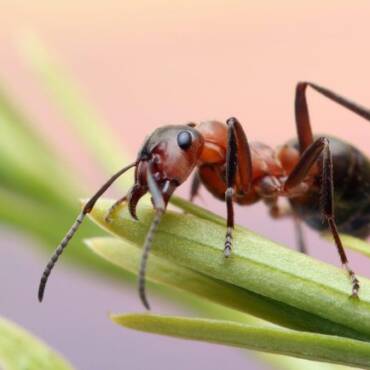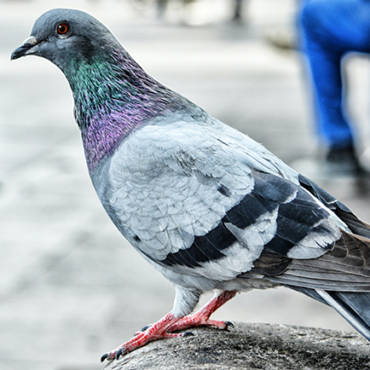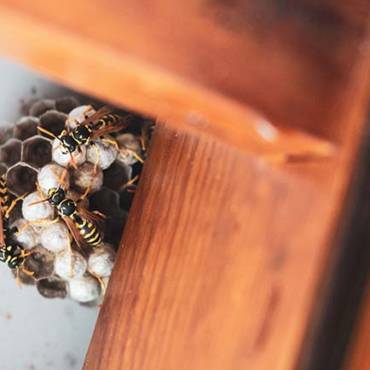The Life Cycle of Wasps: Understanding Wasp Behavior for Effective Pest Management
Wasps, with their conspicuous buzzing and unmistakable presence, can be quite the nuisance in our homes and gardens. Posing risks ranging from painful stings to potentially severe allergic reactions, it’s no wonder that homeowners look for effective measures to ensure that their properties remain wasp-free. Understanding the life cycle of these insects can play a vital role in developing an effective pest management strategy. That’s why in this blog post, we at Bee Smart Pest Control aim to demystify the fascinating world of wasps.
Among the myriad species that exist worldwide, the lifecycle of a wasp generally comprises four stages – egg, larva, pupa, and adult. With each stage bringing unique behaviors and characteristics, gaining insights into these phases can equip homeowners with the knowledge they need to handle a wasp infestation intelligently. Moreover, recognizing the signs of wasp activity at different times of the year can help in timely detection and intervention, preventing a full-blown invasion of these stinging pests.
Through this article, we will take you on a journey exploring the life cycle of a typical wasp, including its nesting habits, reproductive processes, and social structure. By understanding these crucial biological facets, you can better predict wasp activity around your home and effectively mitigate the risks they pose. We will provide tips for home maintenance practices that can deter wasps from establishing nests on your property and provide best practices for safe and effective wasp control.
1. The Intriguing Life Cycle of Wasps
The life cycle of a wasp involves four stages: egg, larva, pupa, and adult. Understanding each phase of development can help identify wasp activity in and around your home.
– Egg: Wasps begin their life cycle when the queen lays fertilized eggs in the nest’s cells. Each individual cell will eventually house a developing larva, pupa, and adult wasp.
– Larva: Once the eggs hatch, the larvae emerge and remain in the cells. The worker wasps collect food (usually other insects) and feed it to the larvae.
– Pupa: After the larval stage, the wasps transform into pupae and remain in their cells while they metamorphose into adult wasps.
– Adult: Fully developed wasps emerge from their cells and assume specific roles in the colony, such as workers, males, or new queens.
2. Understanding Wasp Social Structure and Nesting Habits
Most wasps are social insects living in colonies, founded by a single queen who lays the eggs and establishes the nest. There are several types of wasp nests, including aerial nests and ground nests. Understanding their social structure and nesting habits can provide valuable knowledge for easy identification and effective pest management.
– Queen: The queen is the mother of the colony, responsible for laying eggs and controlling the social order. She often begins building her nest in the spring and continues to lay eggs until the fall, then dies off with her colony as winter approaches.
– Workers: Worker wasps are typically female, sterile, and responsible for various tasks within the colony, such as caring for the larvae, foraging for food, and protecting the nest.
– Males: Males are born in late summer and early fall, and their primary role is to mate with the queen before dying shortly after.
– The next generation: Once new queens and males have emerged, the young queens will mate and leave the nest. They will then overwinter, emerging in the spring to establish new colonies.
3. Practical Tips for Preventing Wasp Nests
The following preventative measures can help deter wasps from building nests on or around your property:
– Regularly inspect your property for signs of wasp activity, such as emerging queens in the spring and nests being built.
– Seal any cracks or gaps around windows, doors, and siding to prevent wasps from entering or building nests in these areas.
– Manage waste by properly sealing garbage cans and eliminating potential food sources for wasps.
– Trim overhanging branches and shrubbery near your home, as these can provide ideal locations for wasps to construct nests.
4. Effective Wasp Control Techniques
If you have detected wasp activity around your home, implementing the following wasp control techniques can help ensure a safe environment:
– Early prevention: Act quickly to remove any small, newly constructed nests. This will discourage wasps from moving in and building large, established colonies in your home or garden.
– Traditional insecticides: Use targeted insecticides for wasps, preferably with low toxicity or organic formulations, to treat nests directly. Be cautious when using insecticides, and always follow the manufacturer’s instructions.
– Non-toxic methods: For smaller infestations, consider using non-toxic methods such as traps and natural repellents. These options can be safer for your family and the environment.
– Professional extermination: If you’re dealing with a large or aggressive colony, contact a pest control professional like Bee Smart Pest Control that specializes in wasp extermination.
Conclusion
Understanding the life cycle, social structure, and nesting habits of wasps provides a solid foundation for effective pest management. By taking preventative measures, identifying potential signs of infestation, and applying appropriate control techniques, you can successfully maintain a wasp-free environment in and around your home. Remember that your safety should always come first, especially when dealing with aggressive or sizable wasp colonies. In such cases, consult with professional pest control services to ensure a safe and effective solution.
As we deepen our understanding of wasps and their ecological importance, we can better manage these creatures while appreciating their role in the natural world. By becoming well-informed and adopting effective pest control techniques, you can keep your home wasp-free and enjoy a comfortable, worry-free environment for you and your loved ones. Reach out to us today at Bee Smart Pest Control for all your pest control needs!




